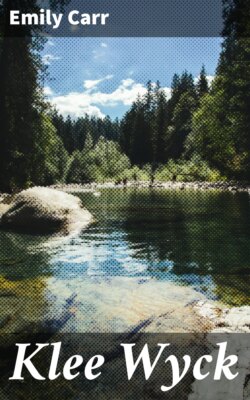Читать книгу Klee Wyck - Emily Carr - Страница 3
На сайте Литреса книга снята с продажи.
ОглавлениеFOREWORD
Table of Contents
“If it be true that good wine needs no bush, ’tis true that a good play needs no epilogue. Yet to good wine they do use good bushes: and good plays prove the better by the help of good epilogues. What a case am I in then that am neither a good epilogue nor cannot insinuate with you in behalf of a good play ...”
My plight is much less difficult than Rosalind’s. I am not an epilogue at all, good or bad—in fact I should hate to be an epilogue. I have no other function to perform than to open the door for you and invite you into a new experience. I am also in better case than she, if we may trust her own statement, in that I can insinuate with you in behalf of a good book.
It seems almost an impertinence that I should tell readers who Miss Carr is—my brief note concerning her must seek its justification in the fact that in the present volume she makes her very first appearance as a literary figure.
Born almost seventy years ago in Victoria of English parentage, Emily Carr is a thorough-going, downright Canadian. She early gave evidence of unusual interest and talent in drawing, promise richly realized in the ample and distinguished achievement of her painting. In her early teens she ventured into the then reputedly wicked city of San Francisco to train at the Art School there. With the exception of that period, a sojourn of some years in England and another in France, Miss Carr has lived her whole life in Western Canada which she loves with deep loyalty. Here she has worked at her art with singular devotion and courage despite the indifference and, at times, even hostility of her friends and fellow citizens. Perhaps it is because of public neglect of her early work that she developed in her painting a style so individual and sincerely personal that it seems to me presumptuous to try to analyze it, looking as usual for influences and tendencies, and quite futile to come with labels all ready to smack onto this Canadian woman’s vital, vivid work.
To a few of her closest friends it became known some time ago that Miss Carr had for years been writing, setting down in simple, unaffected prose, early experiences of her childhood in Victoria or later adventures in Indian villages of the British Columbia Coast. This writing has been done for no other reason than to provide occasional escape and relaxation for the artist, or, at times, to fix clearly in her mind sequences of events and impressions of people and places, the edges of which might become dim. It has none of the too frequent self-consciousness which makes tedious reading of reminiscences prepared intentionally for the public.
Klee Wyck is made up of sketches written at various times and brought together and published now for the first time. Long ago when it was her habit in summers to go into wild, lonely places seeking Indian subjects, Miss Carr’s artist mind received impressions which have remained sharp and real for her across the years. By fish boat, gas boat, sometimes by Indian canoe, taking with her a few books, at least one dog and her sketching kit, she penetrated forest and village on the British Columbia coast, even going on occasion over to the Queen Charlottes. The vivid images stored then in her mind have been brooded over since by her rich imaginative faculty and the result is an unusual collection of sketches, this time in words, not paint.
The name Klee Wyck is in itself interesting and a word of explanation is perhaps justifiable. It was the name which the Indians gave Miss Carr at Ucluelet. It meant “Laughing One” and was given to her not because she laughed a great deal—as she herself would say, there is not much of “giggle” in her. But her laughter in Ucluelet went out to meet the Indians, taking the place of words, forming a bond between them. They felt at once that the young girl staying in the missionaries’ house understood them and they accepted her....
But you will think me a churlish porter if I any longer hold closed the door and exclude you from a gallery through which I have myself moved with delight.
IRA DILWORTH
Vancouver, B.C.
October, 1941.
Table of Contents
